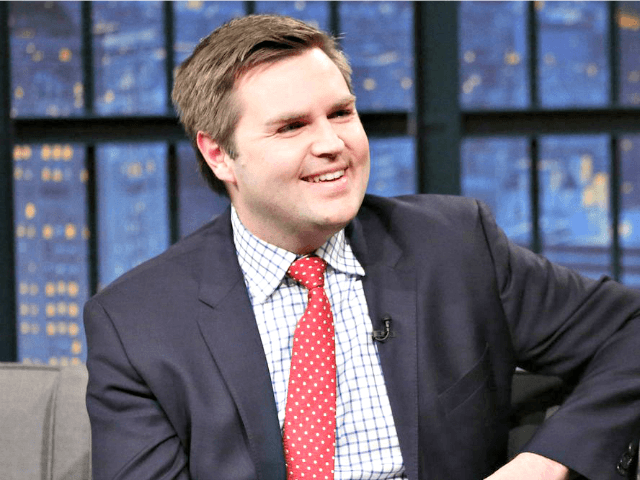J.D. Vance, the author of the bestselling Hillbilly Elegy, was baptized and received into the Catholic Church in Cincinnati last weekend, a week after Ron Howard wrapped up filming for the movie of the same name.
“I became persuaded over time that Catholicism was true,” Vance said in an interview published Sunday. “I was raised Christian, but never had a super-strong attachment to any denomination and was never baptized. When I became more interested in faith, I started out with a clean slate, and looked at the church that appealed most to me intellectually.”
Vance said that he also looked at the people who meant the most to him and found they were Catholic, which also influenced his decision.
“I’ve been reading and studying about it for three years, or even longer. It was time,” he said.
“It probably would have happened sooner if the sex abuse crisis, or the newest version of it, hadn’t made a lot of headlines,” he said. “It forced me to process the church as a divine and a human institution, and what it would mean for my two-year-old son. But I never really questioned over the past few years that I would become Catholic.”
Subtitled “A Memoir of a Family and Culture in Crisis,” Vance’s Hillbilly Elegy has been described as “a passionate and personal analysis of a culture in crisis — that of white working-class Americans.” Released in June, 2016, it summed up for many the state of many of the nation’s “deplorables” who would go on to help elect Donald J. Trump to the White House in November.
Vance himself is a graduate of Yale Law School, a far cry from his “dirt-poor” Appalachian beginnings, as well as being a former marine who served in Iraq.
“One of the things I love about Catholicism is that it’s very old,” Vance said, which allows him to take modern crises in stride. “I take a longer view. Are things more daunting than they were in the mid-19th century? In the Dark Ages? Is it as daunting as having a second pope at Avignon? I don’t think so.”
“The hope of the Christian faith is not rooted in any short-term conquest of the material world, but in the fact that it is true, and over the long term, with various fits and starts, things will work out,” he said.
As his patron saint, Vance chose the 5th-century St. Augustine of Hippo, saying that he had been “pretty moved by the Confessions” but that there is “just a way that Augustine is an incredibly powerful advocate for the things that the Church believes.”
“I had come from a world that wasn’t super-intellectual about the Christian faith. I spend a lot of my time these days among a lot of intellectual people who aren’t Christian,” Vance said. “Augustine gave me a way to understand Christian faith in a strongly intellectual way.”
“I also went through an angry atheist phase. As someone who spent a lot of his life buying into the lie that you had to be stupid to be a Christian, Augustine really demonstrated in a moving way that that’s not true,” he added.
Asked what are the chief spiritual dangers for committed Christians in political life in the current moment, Vance said that “being in public life is in part a popularity contest. When you’re trying to do things that make you liked by as many people as possible, you’re not likely to do things that are consistent with the teachings of the Catholic Church.”
“I’m a Christian, and a conservative, and a Republican, so I have definite views about what that means. But you have to be humble and realize that politics are essentially a temporal game,” he said.
“I know a lot of people are very critical of how a majority of self-described Christians have approached Trump,” he continued. “To me, fundamentally the issue that most Christians confront is, which of these two political parties is the least offensive to my faith?”

COMMENTS
Please let us know if you're having issues with commenting.